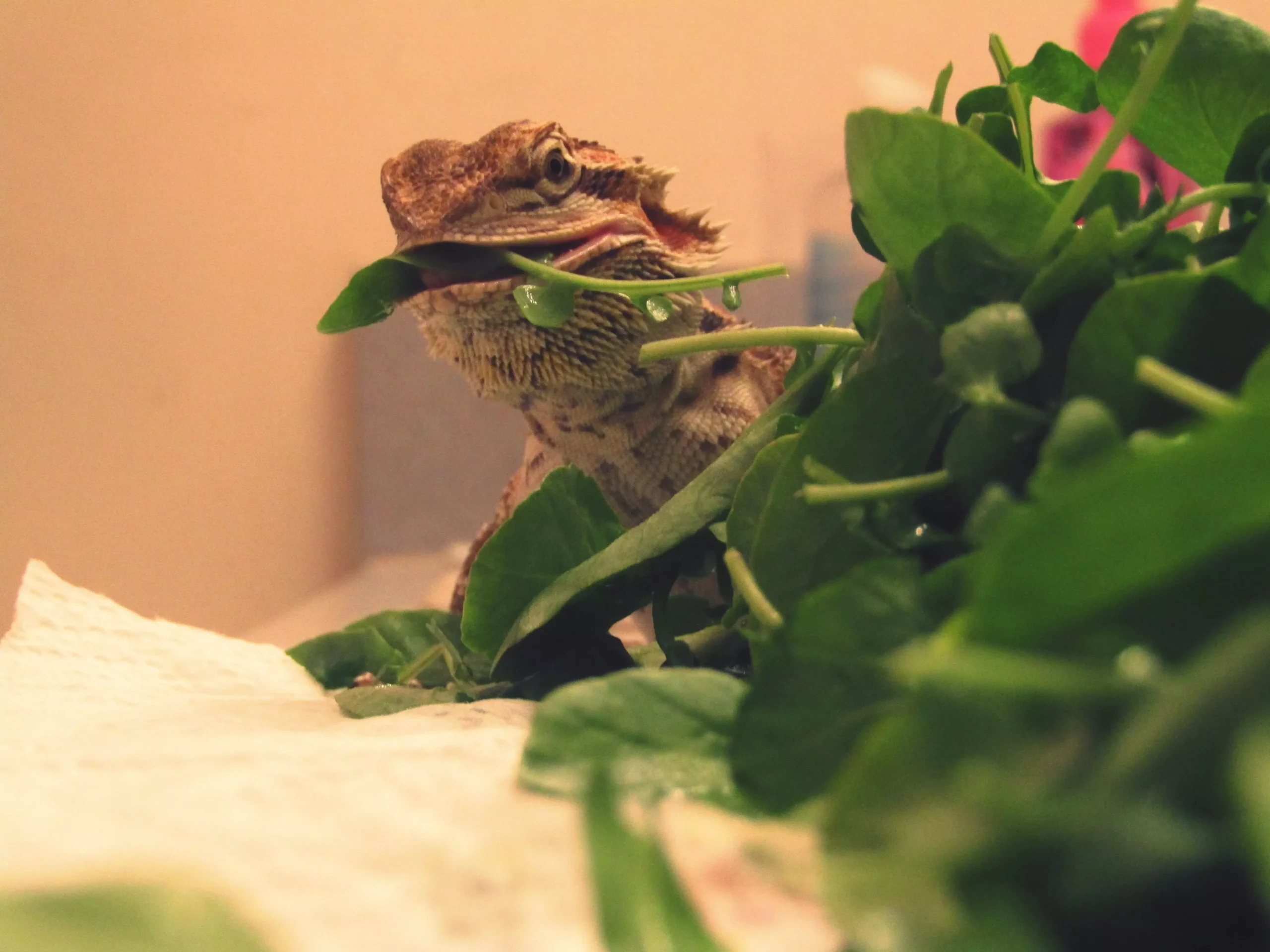Bearded dragons, known for their amiable dispositions and charismatic appearances, require a well-rounded diet to thrive in captivity. A thoughtful approach to their nutrition is essential, particularly as they transition into adulthood. This article will delve into the fundamental aspects of feeding adult bearded dragons, focusing on the importance of a varied diet that includes leafy greens, insects, and how to ensure your pet’s health is maintained through proper nutrition.
For the adult bearded dragon, a robust selection of dark, leafy greens should form the cornerstone of its daily diet. These greens are invaluable as they are rich in essential vitamins and minerals that help maintain energy levels and overall health. It is crucial to provide a diversity of greens in the diet, as different types have varying nutritional profiles. By incorporating a mix, owners can ensure a balanced intake, minimizing the risk of deficiencies or imbalances that can lead to health issues.
A balanced diet should prioritize greens boasting a high calcium-to-phosphorus ratio. This dietary balance is fundamental in preventing metabolic bone disease, a common ailment among bearded dragons. Greens such as chicory, with a calcium-to-phosphorus ratio of 2.1:1, and dandelion greens, at 2.8:1, are excellent choices to include regularly. In contrast, while other greens like beet greens and spinach can provide some nutrients, their high oxalate contents can bind calcium and thus should be offered sparingly.
Oxalates are naturally occurring substances found in various vegetables that can interfere with calcium absorption. For bearded dragons, it is essential to understand which greens contain high oxalate levels, as these should be treated with caution or avoided altogether. For instance, Swiss chard and spinach have particularly high oxalate levels and could potentially harm calcium health if fed too often. While greens containing lower amounts of oxalates, such as mustard greens and watercress, can be included in a balanced diet, they should only complement the primary nutritious sources.
When selecting greens, it’s vital to recognize that choices like iceberg lettuce offer minimal nutritional value and should be provided only in small amounts, if at all. While these greens might add some hydration to the diet, they do not contribute significantly to the lizard’s nutritional needs.
In addition to greens, adult bearded dragons require a protein source, primarily through insects such as crickets and mealworms. These insects should be gut-loaded, meaning they have been fed nutritious foods prior to becoming a meal to enhance their nutritional value for the dragon. Bearded dragons can also enjoy occasional fruits and vegetables like squash and bell peppers, which contribute different vitamins and minerals essential for their diet.
Despite the allure of commercial pellets marketed for bearded dragons, these should not serve as the primary food source. They can be offered alongside fresh greens and insects but should never replace the essential live and fresh food sources that fulfill a bearded dragon’s dietary requirements more authentically.
Supplementing the diet with a quality calcium powder is another indispensable aspect of proper care. By lightly dusting the salad with calcium powder multiple times a week, owners can help ensure that their bearded dragon receives sufficient calcium to support its skeletal health.
One of the challenges many bearded dragon owners face is managing their pet’s diet preferences. Bearded dragons can develop fussy eating habits, often gravitating towards less healthy choices. To promote a well-rounded diet, it’s advisable to continue offering a variety of greens, regardless of their current preferences. Mixing greens into appealing salads can help appeal to their taste.
To additionally entice them, try mixing insects into the greens or using small pieces of fruits like raspberries to add color and sweetness. These tactics can capture their interest and promote eating behavior that is more favorable to their health.
Understanding and providing for the nutritional needs of a bearded dragon is an ongoing journey for any pet owner. By prioritizing a rich variety of leafy greens, gut-loaded insects, occasional fruits, and essential supplements, owners can cultivate the health and vitality of their beloved reptiles. Always monitor your dragon’s preference and adapt their diet as necessary, but consistently aim to provide a nutritionally balanced array of foods. Ultimately, a well-fed bearded dragon is not only more vibrant and active but can also enjoy a longer, healthier life.


Leave a Reply